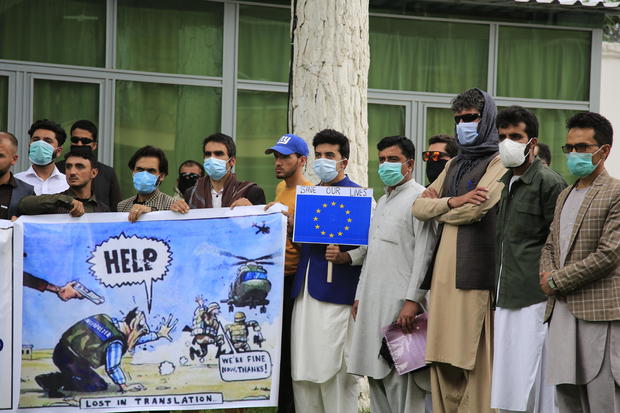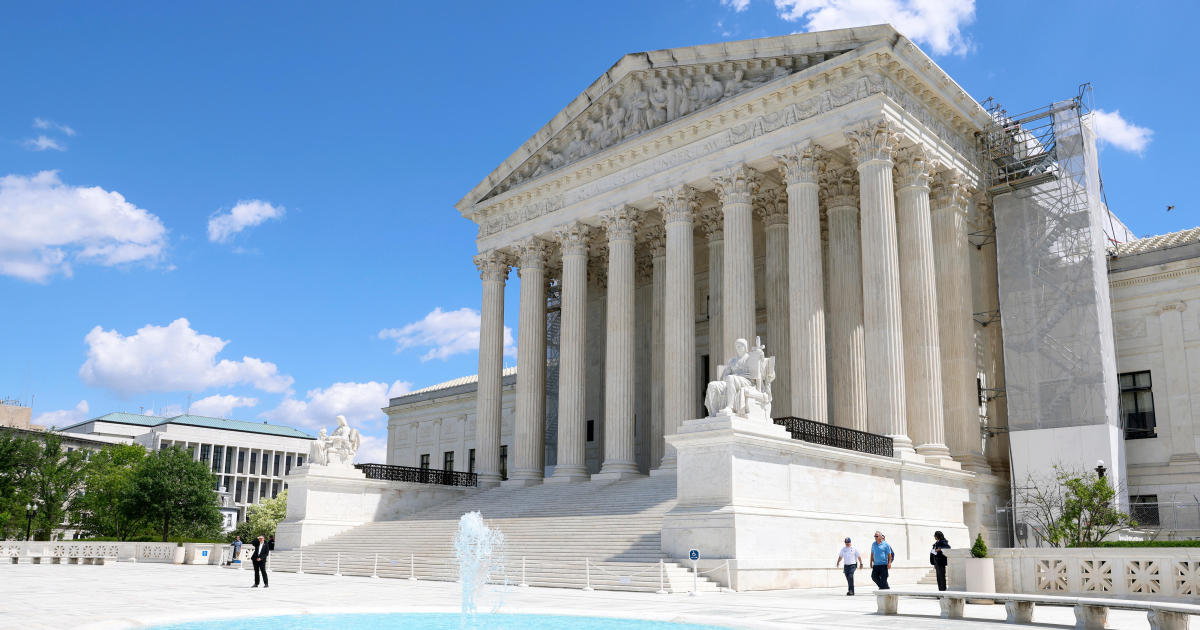Lawmakers urge speeding up special visas for Afghans who aided U.S. troops
Lawmakers are urging for accelerated action from the State Department, Department of Defense, and White House in granting special immigration visas for Afghans who supported U.S. troops in Afghanistan. The request comes ahead of the planned U.S. withdrawal of troops in Afghanistan by September 11.
The Special Immigration Visas for Afghans, SIV, is designated to provide a path for Afghans who aided American troops in Afghanistan to come to the United States.
In a letter to the White House on Wednesday, Senator Jeanne Shaheen and 19 other senators asked for an increase in allotted SIVs, citing the increased Taliban threat to Afghan allies.
"There are already reports of Taliban threats targeting those who helped the U.S. once troops are withdrawn," Shahen wrote in the letter. "These threats cannot be ignored. As Afghans face renewed security concerns due to their work with the U.S., we must ensure that the SIV program has the capacity to bring them to safety."
Currently, there are approximately 18,000 applicants in the pipeline, not including spouses and children. As the countdown for the U.S. withdrawal in September begins, there are fears of the imminent danger posed by Taliban for those left behind.
Chairman of the Joint Chiefs General Mark Milley said this month that the United States with the State Department in the lead has a "moral imperative" to "take care of those that have worked closely with us if their lives are in danger." However, he cautioned against speculation of what the outcome will be once the U.S. leaves.
"There are some obviously bad outcomes that have been discussed, but none of that is preordained, none of that is absolutely inevitable," Milley said, adding, "I think it's a bit early to really sound the alarm on getting everybody out just yet."
The 14-step Special Immigrant Visa process takes on average 996 days to process according to a joint State and DHS 2021 quarterly report. Part of the visa process requires applicants to receive an HR letter from the Chief of Mission, a step that will be more perilous for applicants after the U.S. withdrawal.
"To put it very bluntly none of us want to see one of those individuals that have worked with us have their head cut off on the internet. That's a real threat. That's not hyperbolic," said Representative Brian Mast, a veteran of the war in Afghanistan, at a House Foreign Affairs Committee hearing on Tuesday.
The White House says it is in the midst of an "intensive policy process to improve and surge resources, including adding capacity to process applications at Embassy Kabul, while continuing to ensure the integrity of the program and safeguard national security," a National Security Council spokesperson said in a statement to CBS News.
U.S. Special Representative for Afghanistan Reconciliation, Zalmay Khalilzad, said the State Department is "expediting processing" for SIVs during a hearing on Tuesday.
But with average processing taking approximately 3 years and the U.S. leaving in less than four months, Afghans are concerned.
"The system is incredibly opaque, the decision making process is unclear and feels haphazard at best," Dipali Mukhopadhyay, senior expert on the Afghanistan peace process for the U.S. Institute of Peace, told CBS News.
"This idea of America abandoning Afghanistan, there is nothing inevitable about that. But it will be perceived that way if we mismanage this, it will be perceived that we have abandoned our friends, and people who took great risks for us," Mukhopadhyay said. "And frankly people who didn't ask us to intervene, but upon whom we intervened. That matters. That matters for America's reputation in the world and it matters for ongoing national security interests and equities in the region."
SIVs apply to Afghans who had direct relations with helping the U.S. military in roles such as translators or contractors. However, there are individuals who affiliated themselves with the American cause, which many saw as their own, who are not eligible for SIVs.
"They represent an obstacle to the Taliban, and so those people are also vulnerable. It's important to say most of them have absolutely no desire to leave home," Mukhopadhyay told CBS News.
For this second group of individuals, Mukhopadhyay says the U.S. has to continue investing on the humanitarian front in Afghanistan, as well as the opportunity to apply for asylum.
According to the nonprofit No One Left Behind, over 300 interpreters and their family members have been killed because of their association with the United States.
The State Department says they are processing SIV applications "as quickly as we possibly can." The department says it "has identified process improvements and directed additional resources to the program, including by augmenting staff in Washington to process applications."
They also approved a temporary increase in consular staffing at the U.S. Embassy in Kabul to conduct interviews and process visa applications according to a State Department spokesperson.
For those not within the threshold of an SIV, David Helvey, acting Assistant Secretary of Defense for Indo-Pacific Security Affairs, said the Defense Department is looking into other tools "whether that's significant public benefit or humanitarian parole or other types of mechanisms." On SIVs, the Defense Department will look at "biometric data, which can also help to provide information and insight on who may qualify for that type."
In response to his statements, Senator Jim Inhofe said "I don't get a lot of comfort out of those answers. I'm very much concerned about this."
The results of SIV approvals, and the manner of the U.S. withdrawal, will impact how the U.S. is perceived by its international partners.
"The Afghans I knew didn't see the Americans as occupiers, they saw them as partners, as enablers of their own wish to defeat the Taliban. I think they will have felt used. I think that creates dangerous opportunities for rivals of the United States, whether it's the Russians, the Chinese, or the Iranians. They can say 'the Americans let you down. We will be there to support you,'" said Mukhopadhyay.




